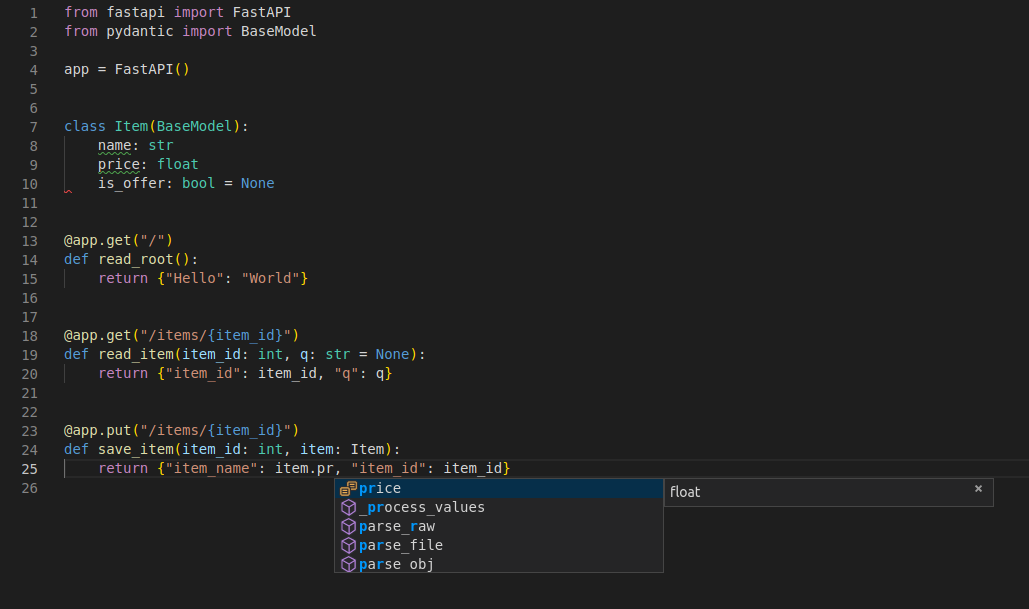- Sort Score
- Result 10 results
- Languages All
Results 741 - 750 of 3,858 for Mode (0.9 sec)
-
lib/hg/goreposum.py
# Copyright 2025 The Go Authors. All rights reserved. # Use of this source code is governed by a BSD-style # license that can be found in the LICENSE file. # Mercurial extension to add a 'goreposum' command that # computes a hash of a remote repo's tag state. # Tag definitions can come from the .hgtags file stored in # any head of any branch, and the server protocol does not # expose the tags directly. However, the protocol does expose
Registered: Tue Dec 30 11:13:12 UTC 2025 - Last Modified: Tue Nov 11 15:21:02 UTC 2025 - 2.4K bytes - Viewed (0) -
guava-tests/test/com/google/common/graph/AbstractStandardUndirectedNetworkTest.java
public void validateUndirectedEdges() { for (Integer node : network.nodes()) { new EqualsTester() .addEqualityGroup( network.inEdges(node), network.outEdges(node), network.incidentEdges(node)) .testEquals(); new EqualsTester() .addEqualityGroup( network.predecessors(node), network.successors(node), network.adjacentNodes(node)) .testEquals();
Registered: Fri Dec 26 12:43:10 UTC 2025 - Last Modified: Tue Sep 30 17:09:51 UTC 2025 - 19K bytes - Viewed (0) -
cmd/bucket-policy-handlers_test.go
apiRouter.ServeHTTP(recV4, reqV4) // Assert the response code with the expected status. if recV4.Code != testCase.expectedRespStatus { t.Fatalf("Case %d: Expected the response status to be `%d`, but instead found `%d`", i+1, testCase.expectedRespStatus, recV4.Code) } // read the response body. bucketPolicyReadBuf, err := io.ReadAll(recV4.Body) if err != nil {
Registered: Sun Dec 28 19:28:13 UTC 2025 - Last Modified: Fri Aug 29 02:39:48 UTC 2025 - 32.9K bytes - Viewed (0) -
tensorflow/c/c_api.h
// example, one cannot use the output of "switch" node as input. // - `inputs` and `outputs` cannot have reference types. Reference types are // not exposed through C API and are being replaced with Resources. We support // reference types inside function's body to support legacy code. Do not // use them in new code. // - Every node in the function's body must have all of its inputs (including
Registered: Tue Dec 30 12:39:10 UTC 2025 - Last Modified: Thu Oct 26 21:08:15 UTC 2023 - 82.3K bytes - Viewed (0) -
docs/en/docs/advanced/generate-clients.md
You would also have **inline errors** for everything. And whenever you update the backend code, and **regenerate** the frontend, it would have any new *path operations* available as methods, the old ones removed, and any other change would be reflected on the generated code. 🤓
Registered: Sun Dec 28 07:19:09 UTC 2025 - Last Modified: Wed Dec 17 20:41:43 UTC 2025 - 10.1K bytes - Viewed (1) -
api/go1.13.txt
pkg syscall (netbsd-arm64-cgo), type BpfHdr struct, Tstamp BpfTimeval pkg syscall (netbsd-arm64-cgo), type BpfInsn struct pkg syscall (netbsd-arm64-cgo), type BpfInsn struct, Code uint16 pkg syscall (netbsd-arm64-cgo), type BpfInsn struct, Jf uint8 pkg syscall (netbsd-arm64-cgo), type BpfInsn struct, Jt uint8 pkg syscall (netbsd-arm64-cgo), type BpfInsn struct, K uint32
Registered: Tue Dec 30 11:13:12 UTC 2025 - Last Modified: Thu Aug 08 18:44:16 UTC 2019 - 452.6K bytes - Viewed (0) -
docs/pt/docs/features.md
Você raramente precisará voltar à documentação. Aqui está como o editor poderá te ajudar: * no <a href="https://code.visualstudio.com/" class="external-link" target="_blank">Visual Studio Code</a>:  * no <a href="https://www.jetbrains.com/pycharm/" class="external-link" target="_blank">PyCharm</a>:
Registered: Sun Dec 28 07:19:09 UTC 2025 - Last Modified: Wed Nov 12 16:23:57 UTC 2025 - 10.6K bytes - Viewed (0) -
api/go1.14.txt
pkg syscall (freebsd-arm64), type BpfHdr struct, Pad_cgo_0 [6]uint8 pkg syscall (freebsd-arm64), type BpfHdr struct, Tstamp Timeval pkg syscall (freebsd-arm64), type BpfInsn struct pkg syscall (freebsd-arm64), type BpfInsn struct, Code uint16 pkg syscall (freebsd-arm64), type BpfInsn struct, Jf uint8 pkg syscall (freebsd-arm64), type BpfInsn struct, Jt uint8 pkg syscall (freebsd-arm64), type BpfInsn struct, K uint32
Registered: Tue Dec 30 11:13:12 UTC 2025 - Last Modified: Fri Feb 17 20:31:46 UTC 2023 - 508.9K bytes - Viewed (0) -
docs/smb3-features/06-witness-protocol-design.md
CLIENT_MOVE(2), // Client should move to different node SHARE_MOVE(3), // Share moved to different node IP_CHANGE(4), // IP address changed SHARE_DELETE(5), // Share deleted NODE_UNAVAILABLE(6), // Cluster node unavailable NODE_AVAILABLE(7); // Cluster node available private final int value; WitnessEventType(int value) {
Registered: Sat Dec 20 13:44:44 UTC 2025 - Last Modified: Sat Aug 16 02:53:50 UTC 2025 - 42K bytes - Viewed (0) -
cmd/object-handlers_test.go
} if test.expectedErr.Code != errXML.Code { t.Errorf("Test %d %s expected to fail with error %s, but received %s", i+1, instanceType, test.expectedErr.Code, errXML.Code) } } else if rec.Code != http.StatusOK { t.Errorf("Test %d %s expected to succeed, but failed with HTTP status code %d", i+1, instanceType, rec.Code) } } }Registered: Sun Dec 28 19:28:13 UTC 2025 - Last Modified: Sun Sep 28 20:59:21 UTC 2025 - 163.1K bytes - Viewed (0)